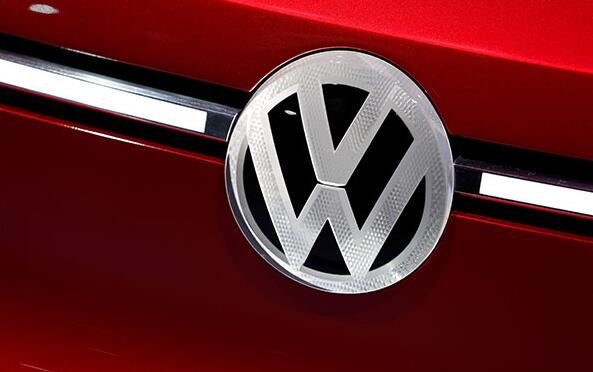[Global Network Comprehensive Report] According to “Nihon Keizai Shimbun” reported on March 14, German Volkswagen (VW) announced on March 12 that it sold 22 million pure electric vehicles (EVs) by 2028. Compared with the sales of 40,000 vehicles in 2018, it will be a huge change. Volkswagen’s move to a pure electric vehicle to save the late start of the race will be accompanied by layoffs and other pains. In the face of the surge of a new generation of automotive technology called “CASE” (connected cars, autonomous driving, sharing, electrification), the smooth transition of the industry king is being tested.
“People will fundamentally change” and hold an annual press conference at the headquarters in Wolfsburg, northern Germany, and Volkswagen CEO Herbert Diess announced this loudly.
70 models by 2028
Volkswagen will increase its pure electric vehicle sales plan (15 million units) in the next 10 years by about 50%. It is currently selling at a rate of hundreds of thousands of vehicles per year, but it is planned to sell an ambitious plan equivalent to more than 3 million vehicles per year that is equivalent to three times the global sales of Mitsubishi Motors around 2025. In 2025, more than 50 models of pure electric vehicles will increase to 70 by 2028.
The performance of the public is strong at the moment. In 2018, the supply increased by 1% from 2017 to 10.83 million units. Despite changes in the European and Chinese markets, operating profit reached a total of 13.9 billion euros. Although it is lower than Toyota, which is expected to reach 2.4 trillion yen, it is more than 22% and only 11.1 billion euros.
However, the rapid “transformation” of the auto giants will be accompanied by tremendous pain.
In 2018, the operating profit margin of the Volkswagen passenger car brand, which accounts for about 60% of the sales volume (excluding special factors), fell by 0.4 percentage points to 3.8%, which was at a low level due to the burden of motorized investment.
In addition, the reduction of personnel is also difficult to avoid. Volkswagen proposes to change 40% of global sales to pure electric vehicles by 2030. However, the sales of pure electric vehicles in 2018 was only 40,000. Although it is cumulative, Nissan’s sales through the pure electric vehicle “LEAF (China Name: Listening Wind)” reached 400,000 units as of March. In contrast, the public started slowly.
Pure electric vehicles originally had fewer parts than diesel locomotives and diesel locomotives, so the number of people involved in production was also reduced. It is difficult to avoid cutting production personnel by popularizing pure electric vehicles with gasoline and diesel vehicles that are more expensive than Volkswagen.
Most of Volkswagen’s 650,000 employees worldwide are involved in the production of existing gasoline and diesel vehicles. The pure electric vehicle production plan of three production bases in Germany released in November 2018 shows that by 2023, 7 to 8,000 people will lose their jobs. Local media reported that Herbert Diss hopes to lay off another 5,000 people, but the relationship between employee representatives and Herbert Diss has rapidly deteriorated.
Start late in car sharing
In addition to the joint development of autonomous driving, Daimler and BMW (BMW), which are also German manufacturers, are also establishing joint ventures for sharing and other travel services, and are promoting bold cooperation. Toyota invested in Uber and joined forces with Softbank. The public is in a situation that is “one to two years behind (compared to Google’s) Googlemo” (Herbert Diss), and it is hard to deny that it is slow to seek a partner.
It is said that Volkswagen will compete with the Ford Motor Company’s “Global Alliance” in a 2018 agreement and is discussing the investment of Ford’s autonomous driving subsidiary. However, there have been limited initiatives so far. The specific measures released in January were the mutual supply of small commercial vehicles, which had to be said to be “small scale” content. The cooperation for autonomous driving only means “conclusions during the year”, and it remains unclear in the field of pure electric vehicles and automatic driving.
In terms of current business, the risks are also piled up. In China, where Volkswagen has the highest share, the sales of new cars in 2018 are lower than last year in 28 years, and 15% in January-February 2019. There is still no sign of recovery. The Trump regime in the United States has hinted at raising tariffs. If a 25% tariff is imposed, it will result in a decline in profits of around 2.5 billion euros per year.
The fees for fines and damages caused by the fraud detection of Volkswagen’s diesel exhaust in 2015 reached 3.2 billion euros in 2018. The cost will be reduced in 2019, but in Germany, it faces litigation with car buyers and investors.
Herbert Diss said, “We are becoming flexible, but we must speed up further. The competition is ahead of us,” showing a sense of crisis. In the face of the great changes brought about by CASE, which is known as the 100-year-old, even the world’s No. 1 automaker can’t stand still.
Post time: Mar-15-2019

